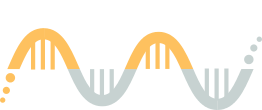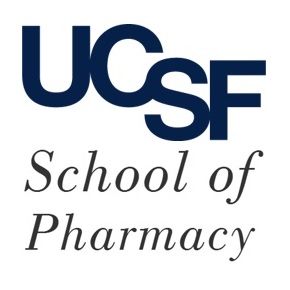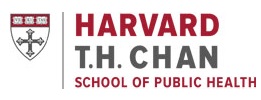Publications
Comprehensive cell type decomposition of circulating cell-free DNA with CelFiE. Nat Commun 12, 2717 (2021).
A cross-population atlas of genetic associations for 220 human phenotypes. Nat Genet 53, 1415-1424 (2021).
Disentangling selection on genetically correlated polygenic traits via whole-genome genealogies. Am J Hum Genet 108, 219-239 (2021).
Elevated Polygenic Burden for Autism Spectrum Disorder Is Associated With the Broad Autism Phenotype in Mothers of Individuals With Autism Spectrum Disorder. Biol Psychiatry 89, 476-485 (2021).
Graphical analysis for phenome-wide causal discovery in genotyped population-scale biobanks. Nat Commun 12, 350 (2021).
Identification of rare and common regulatory variants in pluripotent cells using population-scale transcriptomics. Nat Genet 53, 313-321 (2021).
Population sequencing data reveal a compendium of mutational processes in the human germ line. Science 373, 1030-1035 (2021).
Population-scale tissue transcriptomics maps long non-coding RNAs to complex disease. Cell 184, 2633-2648.e19 (2021).
RAFFI: Accurate and fast familial relationship inference in large scale biobank studies using RaPID. PLoS Genet 17, e1009315 (2021).
Regulatory genomic circuitry of human disease loci by integrative epigenomics. Nature 590, 300-307 (2021).
Sub-genic intolerance, ClinVar, and the epilepsies: A whole-exome sequencing study of 29,165 individuals. Am J Hum Genet 108, 965-982 (2021).
Allelic Heterogeneity at the CRP Locus Identified by Whole-Genome Sequencing in Multi-ancestry Cohorts. Am J Hum Genet 106, 112-120 (2020).
Assessing Digital Phenotyping to Enhance Genetic Studies of Human Diseases. Am J Hum Genet 106, 611-622 (2020).
On the cross-population generalizability of gene expression prediction models. PLoS Genet 16, e1008927 (2020).
Dynamic incorporation of multiple in silico functional annotations empowers rare variant association analysis of large whole-genome sequencing studies at scale. Nat Genet 52, 969-983 (2020).
Electronic health record phenotypes associated with genetically regulated expression of CFTR and application to cystic fibrosis. Genet Med 22, 1191-1200 (2020).
Epidemiology of Functional Seizures Among Adults Treated at a University Hospital. JAMA Netw Open 3, e2027920 (2020).
Evidence for secondary-variant genetic burden and non-random distribution across biological modules in a recessive ciliopathy. Nat Genet 52, 1145-1150 (2020).
A fast and scalable framework for large-scale and ultrahigh-dimensional sparse regression with application to the UK Biobank. PLoS Genet 16, e1009141 (2020).
FasTag: Automatic text classification of unstructured medical narratives. PLoS One 15, e0234647 (2020).
Genetic diagnoses in epilepsy: The impact of dynamic exome analysis in a pediatric cohort. Epilepsia 61, 249-258 (2020).
Identifying causal variants and genes using functional genomics in specialized cell types and contexts. Hum Genet 139, 95-102 (2020).
Improving the trans-ancestry portability of polygenic risk scores by prioritizing variants in predicted cell-type-specific regulatory elements. Nat Genet 52, 1346-1354 (2020).
Modeling epistasis in mice and yeast using the proportion of two or more distinct genetic backgrounds: Evidence for "polygenic epistasis". PLoS Genet 16, e1009165 (2020).
Phenome-based approach identifies RIC1-linked Mendelian syndrome through zebrafish models, biobank associations and clinical studies. Nat Med 26, 98-109 (2020).
A phenome-wide association study of 26 mendelian genes reveals phenotypic expressivity of common and rare variants within the general population. PLoS Genet 16, e1008802 (2020).
A positively selected FBN1 missense variant reduces height in Peruvian individuals. Nature 582, 234-239 (2020).
Race, socioeconomic deprivation, and hospitalization for COVID-19 in English participants of a national biobank. Int J Equity Health 19, 114 (2020).
Rare protein-altering variants in ANGPTL7 lower intraocular pressure and protect against glaucoma. PLoS Genet 16, e1008682 (2020).
A Robust Method Uncovers Significant Context-Specific Heritability in Diverse Complex Traits. Am J Hum Genet 106, 71-91 (2020).
A Transcriptome-Wide Association Study Identifies Candidate Susceptibility Genes for Pancreatic Cancer Risk. Cancer Res 80, 4346-4354 (2020).
Transcriptomic signatures across human tissues identify functional rare genetic variation. Science 369, (2020).
Type 2 and interferon inflammation regulate SARS-CoV-2 entry factor expression in the airway epithelium. Nat Commun 11, 5139 (2020).
A unified framework for joint-tissue transcriptome-wide association and Mendelian randomization analysis. Nat Genet 52, 1239-1246 (2020).
Adjusting for Principal Components of Molecular Phenotypes Induces Replicating False Positives. Genetics 211, 1179-1189 (2019).
A Bayesian framework that integrates multi-omics data and gene networks predicts risk genes from schizophrenia GWAS data. Nat Neurosci 22, 691-699 (2019).
Efficient Variant Set Mixed Model Association Tests for Continuous and Binary Traits in Large-Scale Whole-Genome Sequencing Studies. Am J Hum Genet 104, 260-274 (2019).
Error-prone bypass of DNA lesions during lagging-strand replication is a common source of germline and cancer mutations. Nat Genet 51, 36-41 (2019).
Global Biobank Engine: enabling genotype-phenotype browsing for biobank summary statistics. Bioinformatics 35, 2495-2497 (2019).
Identification of rare-disease genes using blood transcriptome sequencing and large control cohorts. Nat Med 25, 911-919 (2019).
Methods for the Analysis and Interpretation for Rare Variants Associated with Complex Traits. Curr Protoc Hum Genet 101, e83 (2019).
A multi-task convolutional deep neural network for variant calling in single molecule sequencing. Nat Commun 10, 998 (2019).
Opportunities and challenges for transcriptome-wide association studies. Nat Genet 51, 592-599 (2019).
A common loss-of-function variant is associated with lower vitamin B concentration in African Americans. Blood 131, 2859-2863 (2018).

 ]
] 



